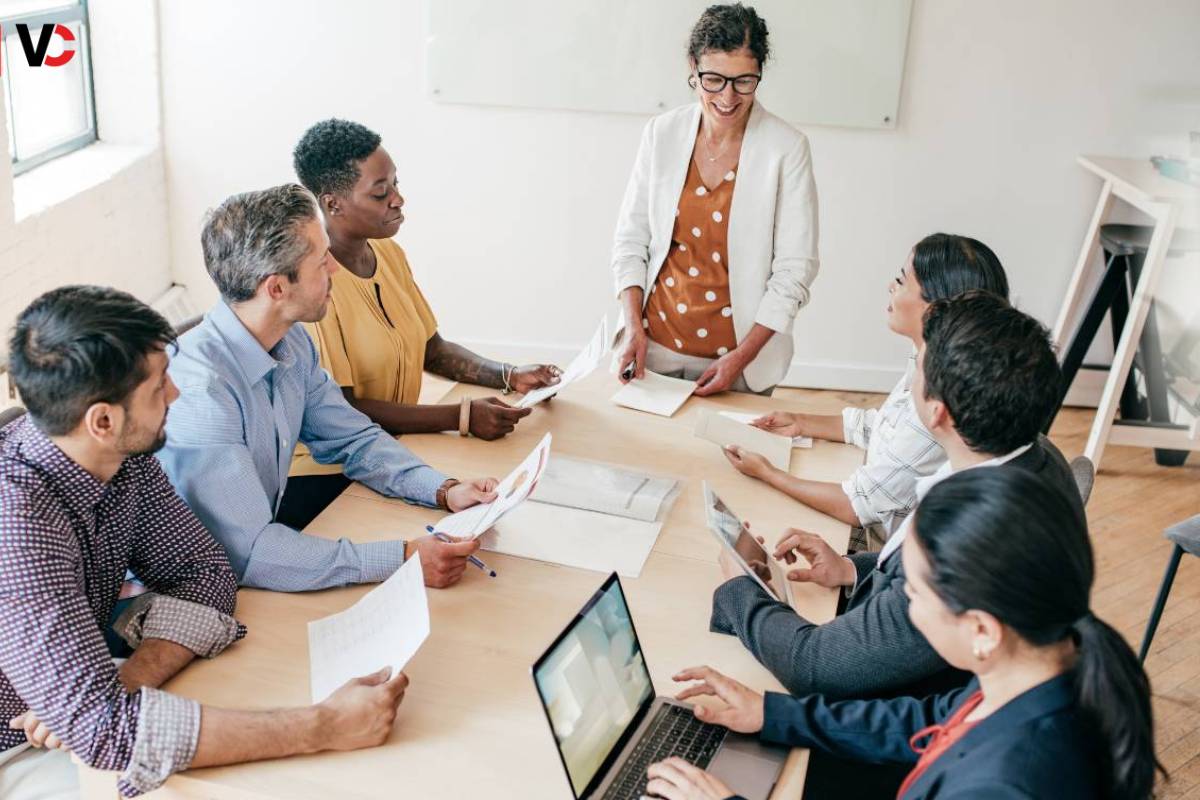In today’s fast-paced world, effective communication techniques are essential for navigating professional and personal relationships. Whether you’re interacting with colleagues, clients, friends, or family, the ability to convey your message clearly and persuasively can make all the difference. From active listening to nonverbal cues, mastering communication techniques empowers individuals to build rapport, resolve conflicts, and achieve their goals.
Understanding Communication Techniques
Communication techniques encompass a wide range of skills and strategies aimed at facilitating effective interaction and mutual understanding. These techniques go beyond mere verbal exchanges to encompass nonverbal cues, active listening, empathy, and assertiveness. By mastering these techniques, individuals can enhance their communication skills and foster meaningful connections with others.
1. Active Listening

Active listening is a foundational communication technique that involves fully engaging with the speaker and demonstrating genuine interest in their message. This technique requires focused attention, empathy, and a willingness to understand the speaker’s perspective without judgment or interruption. By actively listening, individuals can build trust, foster empathy, and cultivate stronger relationships with others.
2. Nonverbal Communication
Nonverbal communication plays a crucial role in conveying emotions, attitudes, and intentions. Techniques such as eye contact, facial expressions, gestures, and body language can significantly impact how a message is perceived and understood. By paying attention to nonverbal cues, individuals can enhance their communication effectiveness and ensure alignment between their verbal and nonverbal messages.
3. Empathy and Understanding

Empathy is the ability to understand and share the feelings of others, and it is a vital communication technique for building rapport and fostering connection. By demonstrating empathy, individuals can validate others’ experiences, show respect, and create a supportive environment for open and honest communication. Cultivating empathy allows individuals to bridge differences, resolve conflicts, and build stronger, more meaningful relationships.
Empathy serves as a cornerstone of effective communication, enabling individuals to connect with others on a deeper level by recognizing and validating their emotions. When individuals feel understood and supported, they are more likely to reciprocate with openness and trust, creating a positive feedback loop that strengthens relationships over time. Moreover, empathy fosters a sense of belonging and mutual respect, fostering an inclusive and supportive environment where diverse perspectives are valued and appreciated. By cultivating empathy in personal relationships, individuals can navigate conflicts with grace, foster understanding across differences, and cultivate bonds based on genuine connection and mutual respect.
4. Assertiveness
Assertiveness is another essential communication technique that involves expressing one’s thoughts, feelings and needs in a clear, confident, and respectful manner. Assertive communication enables individuals to assert their rights, set boundaries, and advocate for themselves while respecting the rights and boundaries of others. By mastering assertiveness, individuals can avoid misunderstandings, resolve conflicts constructively, and build mutual respect in their interactions.
Communication Techniques in Practice
In professional settings, effective communication techniques are indispensable for success in various roles and industries. Whether leading a team, negotiating contracts, or delivering presentations, the ability to communicate effectively can enhance leadership effectiveness, foster collaboration, and drive organizational success. By employing communication techniques such as active listening, empathy, and assertiveness, professionals can inspire trust, facilitate teamwork, and achieve their objectives with greater efficiency and impact.
Communication Techniques in Personal Relationships
Effective communication techniques are equally vital in personal relationships, where they form the foundation for healthy and fulfilling connections. Whether communicating with a partner, family member, or friend, the ability to listen actively, express empathy, and communicate assertively can strengthen bonds, resolve conflicts, and foster intimacy. By applying communication techniques in personal relationships, individuals can cultivate trust, deepen understanding, and nurture lasting connections with those who matter most.
Communication techniques play a pivotal role in navigating the complexities of personal relationships, allowing individuals to express their thoughts, feelings, and needs constructively. Active listening, for instance, involves fully engaging with the speaker, demonstrating empathy, and seeking to understand their perspective without judgment or interruption. This fosters mutual respect and validation, laying the groundwork for open and honest communication. Similarly, expressing empathy involves acknowledging and validating the emotions of others, demonstrating compassion, and offering support. These techniques create a safe and supportive environment where individuals feel heard, understood, and valued, fostering deeper connections and strengthening bonds in personal relationships.
Challenges and Opportunities

While mastering communication techniques offers numerous benefits, it also presents challenges and opportunities for growth. Effective communication requires ongoing practice, self-awareness, and a willingness to learn from both successes and failures. Additionally, navigating cultural differences, language barriers, and diverse communication styles requires adaptability and open-mindedness. By embracing these challenges and opportunities, individuals can refine their communication skills and unlock new possibilities for personal and professional growth.
Indeed, mastering communication techniques is a journey filled with both challenges and opportunities. Cultural differences, for example, can pose significant hurdles, requiring individuals to approach communication with sensitivity, respect, and cultural competence. Similarly, language barriers may hinder effective communication, necessitating creative solutions such as using visual aids or seeking interpretation services. Furthermore, diverse communication styles within a team or relationship dynamic can lead to misunderstandings or conflicts if not addressed proactively. However, by viewing these challenges as opportunities for growth and learning, individuals can expand their communication repertoire, foster inclusivity, and strengthen relationships across cultural and linguistic divides, ultimately unlocking new avenues for personal and professional development.
Conclusion
In conclusion, mastering effective communication techniques is essential for success in today’s interconnected world. Whether in professional or personal contexts, the ability to communicate clearly, empathetically, and assertively enables individuals to build rapport, resolve conflicts, and achieve their goals. By actively practicing communication techniques such as active listening, nonverbal communication, empathy, and assertiveness, individuals can enhance their communication skills and cultivate stronger, more meaningful connections with others. As communication remains a cornerstone of human interaction, investing in mastering these techniques is an investment in personal and professional success.
Also Read: Driving Success: The Power of Automobile Branding in the Modern Marketplace


















